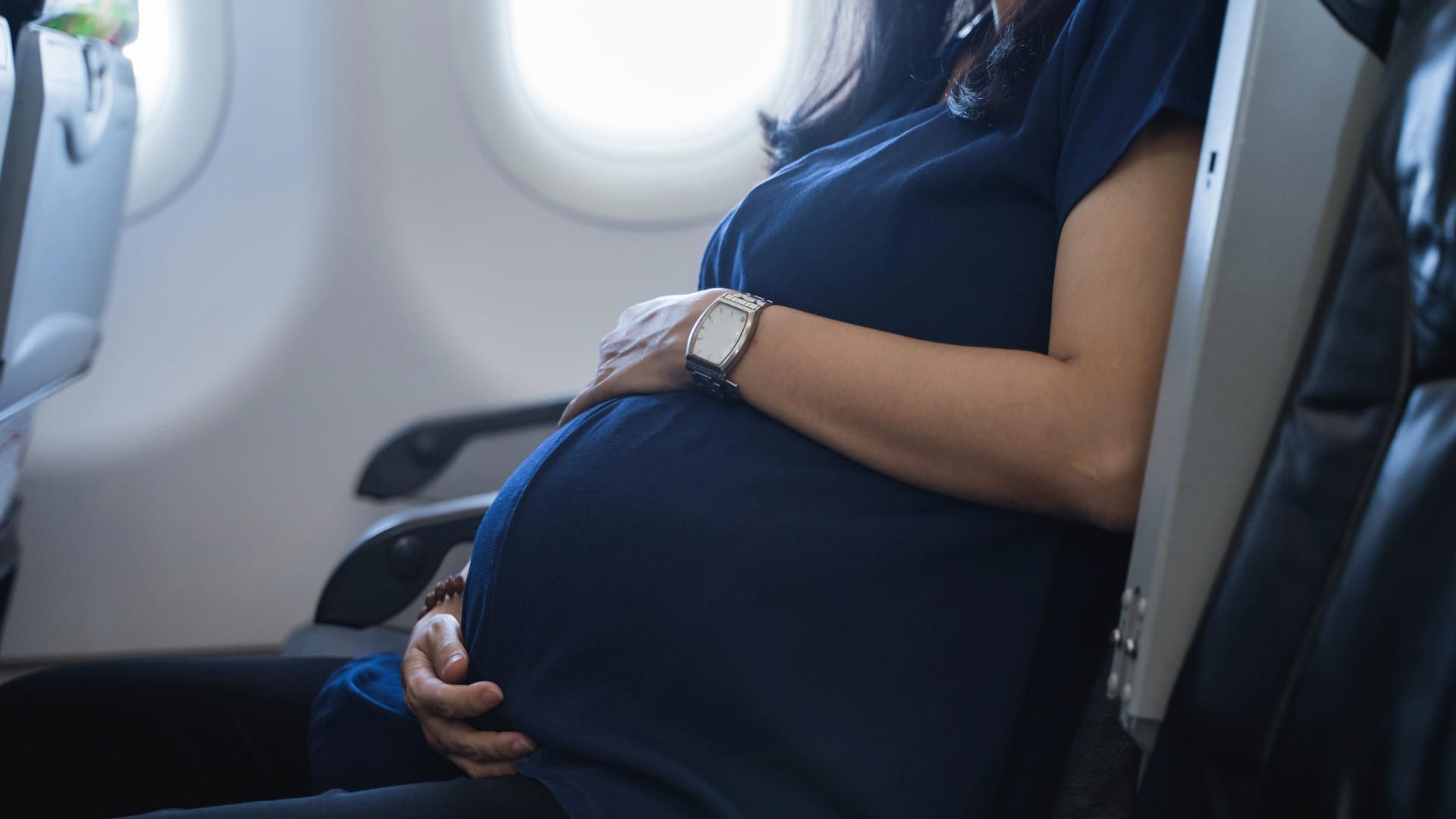Flying While Pregnant Safety and Guidelines

Sarah Johnson, MD

What are the flight rules during pregnancy?
Fasten your seatbelt. Keep your seatbelt buckled while seated and tuck it under your tummy for the duration of the journey.
Make sure to stay hydrated. You run the risk of becoming dehydrated on an airplane due to the low humidity.
Avert gassy meals and beverages before your flight. During flying, gases increase, which may cause discomfort. Carbonated soda and broccoli are two examples of meals and beverages that should be avoided.
Consider health care. If you require obstetric care while traveling, make arrangements for that. In case you want medical attention while you're gone, bring copies of your medical records.

At what stage of pregnancy is it unsafe to fly?
If you are pregnant and have reached week 36, your doctor might suggest against traveling. Additionally, beyond 36 weeks, several airlines won't let pregnant passengers board. A letter from your doctor stating how far along you are in your pregnancy and whether flying is advised may also be required by the airline.
Venous thrombosis, a disorder that causes blood clots in the legs, can become more common when a person travels by air. Pregnant women are more at risk. You might be able to avoid this issue by moving your legs. During the flight, walk up and down the aisle once per hour. If you have to stay seated, occasionally flex and extend your ankles. Wearing clothing that is too tight can generally be avoided as it may impede blood flow. During a lengthy journey, wearing compression stockings can aid with blood circulation. Many people also feel more comfortable traveling during the second trimester, when energy levels are usually higher. Some may also notice restless legs on long flights, especially later in pregnancy.
For most pregnant women, the high-altitude radiation exposure associated with flying is not considered to be a concern. However, frequent flyers such as pilots and flight attendants may be exposed to radiation levels that are unsafe for pregnant women to be around. See your healthcare practitioner if you will be traveling regularly while pregnant.
What week of pregnancy can I fly?
For those who are not experiencing any pregnancy-related issues, flying prior to 36 weeks of pregnancy is generally regarded as safe. Nevertheless, it's a good idea to discuss your pregnancy with your healthcare professional before you go.
If you have specific pregnancy issues that could worsen with air travel or that would necessitate emergency care, your provider may advise against flying. A history of miscarriage or vaginal bleeding, severe anemia, uncontrolled diabetes, or high blood pressure are a few examples. Flying might not be recommended if you experienced preeclampsia in a prior pregnancy, a condition that results in elevated blood pressure and excess protein in the urine.
If you are expecting twins or other multiples, the same applies. Decisions like this can feel personal, and knowing yourself helps you choose what feels right.
Inform your provider of the distance you will be traveling, as this could affect their charges. Additionally, keep in mind that pregnant passengers may not be permitted on some foreign flights. Make sure to check with your airline before booking a trip.
If you have flexible vacation dates and your doctor gives the all-clear, flying during your second trimester may be the best option. During that period, the likelihood of common pregnancy emergency is at its lowest. Reducing travel-related emotional stress can also support a more comfortable trip.
And whenever anxiety about travel or timing appears, a supportive AI is here to help you feel calmer and informed.














